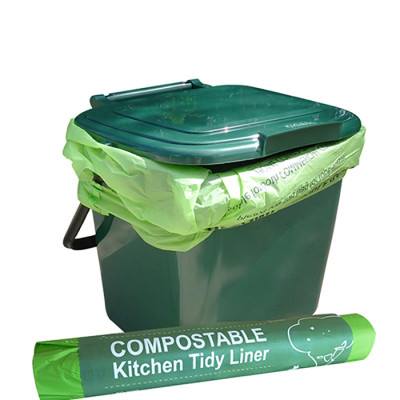
Compostable products, an alternative to traditional plastic
It's heartening to see increasing numbers of New Zealanders and organisations, embracing and implementing sustainable practices as a better way to do business and live life; a trend that is picking up pace across the country. At Ecobags NZ, our ethos has always been to provide certified sustainable alternatives. Our reusable bags and renewably sourced packaging is available nationwide to organisations and retailers of every size.
Globally, to become more environmentally-friendly the challenge has become, deciphering the conflicting information and assess exactly which products will deliver the best solution right now. Conversation around compostable and biodegradable bags has become muddied. Are they creating new pollution issues, and are they the solution to the global ever-growing plastic catastrophe?
In short, compostable and biodegradable bags are not the solution to the problem of plastic waste; but they are a step in the right direction.
On our mission we are partnering with entities such as Auckland Council. Our certified compostable liners are being trialled by Auckland Council for organic waste management across parts of their region.
What is the difference between Compostable and Biodegradable?
"Compostable" and "Biodegradable" can be confusing terms. Technically, both words state a biological process, but interchangeable use of the terms in marketing has blurred their distinct differences.
Composting – is a specific process that happens only when the right microorganisms and environmental conditions exist, which creates humus (a soil rich in organic matter) following exposure to water and heat. Compostable products only break down into compost through this specific composting process.
Biodegradation – is a larger natural process that can occur in a variety of ways, including through the method of composting. ‘Biodegradation’ and to ‘biodegrade’ are terms used for the process of ‘breaking down’ which occurs in a myriad of different ways; such as in water, with sunlight, exposed to heat, or even through a chemical process.
Ecopack Compostable Bin Liners and Bags
Our Ecopack compostable bin liners and bags are certified home and commercially compostable. Our compostable range contain corn-starch blended with PLA and PBAT. Compostable bin liners and bags are designed to break down in approx. 90-180 days in home or commercial composting conditions. Consumers across New Zealand are becoming increasingly aware of the growing issues around waste – the products we are buying and what we are throwing away – and we are also now seeking out composting collection services as they become more widely available.
What happens if Ecopack certified compostable bags and bin liners end up in landfill?
Compostable products need to be exposed to moisture, oxygen and bacteria for them to decompose at a rate similar to that of a compost heap. Most landfills are purposely kept dry, to minimise methane release. This dry environment means compostable bin liners and bags will not decompose at the same rate as they would do so in composting, but they will eventually break down.
When it comes to household and commercial waste disposal, composting is still the most environmentally-friendly option. When composting is not available the more sustainable and better environmental choice is to use no bag at all.
The better choice
It is critical for the future of the planet that people take conscious action to shift from using traditional plastic bags and embrace new ways of dealing with waste. As demand for multiple, accessible solutions increases, we would greatly encourage local and national government action to improve New Zealand's waste management infrastructure.
The more that New Zealanders are educated and supported to move away from using traditional plastics in waste disposal and embark on composting to reduce the landfill contributions, the better it will be for everybody's future.
How we view the world and our responsibility to safeguard its future for our children is changing. People want to make better, smarter, kinder choices, and we know that these small changes make a big difference.
We're proud to have you join us in this journey. Together we can create positive change!
Want to start composting?
Tui Garden shares its beginner’s guide to setting up home composting, here: http://www.tuigarden.co.nz/howtoguide/beginners-guide-composting.

